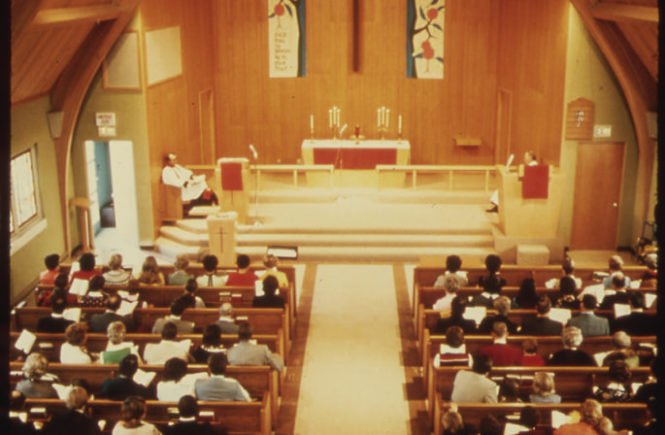The words plunged into me like a dagger: “Jessica, In this case, you were wrong. You were manipulative. You inserted yourself to be part of a group where truth is, not everyone would welcome you. I ask that you make arrangements at a different hotel.”
My church was going to a highly anticipated conference, and my former church, halfway across the country, wanted to attend but had missed out on early sign-up benefits. During a 5-day visit with my friend, she expressed disappointment about the missed opportunities. I extended my church’s resources (with their permission), which she graciously accepted… and then the above message popped into my inbox, written by her husband (and my former pastor). He heard through the grapevine – not his wife, and assumptions were made about my intentions and the reach of his authority.
OUR CHURCH HURT
When people tell me they are apprehensive about the church, the list of reasons is long and justifiable (and relatable). They don’t feel loved, accepted, cared for, seen, understood. They’ve been manipulated, abused, rejected, and betrayed. They say, “Jesus talks about love, but Christians don’t practice love.”
This example of church hurt, along with so many others I’ve endured since is still raw. There’s the problem of my sin, too. My hard-heartedness (Hebrews 3:13), my sin against others. Will it crush someone the way I was crushed? Will my repentance be rejected? Will I be “extended forgiveness” but withheld reconciliation? Will God’s love, grace, and reconciliation be merely a theory rather than a sacred practice by his people?
This type of pain and betrayal is deep, unique, and guttural. I would rather a stranger betray me in more overt ways than by a brother or sister in Christ. Why? Why does church hurt resonate and linger deep in our bones? I believe one reason has to do with being made in the image of God, by which we display God, His glory, His character, and His love.
A new commandment I give to you, that you love one another: just as I have loved you, you also are to love one another.
John 13:3
In John 13:34, Jesus calls for the embodiment of God’s character in the most demanding of ways: love. God is serious about His love and what it communicates when practiced by his image-bearing followers. Jesus continues in verse 35: “By this, all people will know that you are my disciples if you have love for one another.” We share, participate in, and display Christ’s love when believers love one another. Therefore, we authenticate our testimony and Christ to the world.
DEFILING GOD’S IMAGE
Likewise, we inflict the deepest of wounds when we betray and hurt a brother or sister. If we display and glorify the image of God when we love, then surely we are defiling God’s very image when we hurt and betray one another. Not only is it an assault against God and His image, but it also convinces the world to reject Christ. Gandhi famously and accurately criticized Christianity when he said, “I like your Christ. I do not like your Christians.”
If our “un-love” is what convinces the world to reject Christ, then what does it tell our brothers and sisters? I can tell you what lies I believed: “My brokenness is too much.” “It’s great that Jesus loves me and forgives me, but no one else ever can.” “No matter how much God changes me or transforms me, I’ll never be seen as anything but that person I was or that thing I did.” “My sin is bigger than yours.” “The pain I’ve caused is somehow worse than anything you’ve ever done and, therefore, unworthy of forgiveness.” The lies are all saying the same thing: I’m irredeemable.
Christ is serious about the love his people display to one another and, therefore, to the world. He is equally serious about his church’s humble reconciliation to itself. It is what he purchased on the cross when he reconciled us to the Father. It’s what he commands.
But you are a chosen race, a royal priesthood, a holy nation, a people for his own possession, that you may proclaim the excellencies of him who called you out of darkness into his marvelous light. Once you were not a people, but now you are God’s people; once you had not received mercy, but now you have received mercy.
1 Peter 2:9-11
THE RECONCILIATION OF THE CROSS
In 1 Peter, Peter declares what Christ’s reconciliation to Himself through the cross purchases – a reconciled people to Him and one another. We are reconciled from the divisiveness of race, gender, ethnicity, and sin against one another, and reconciled to God and one another. How powerful is the cross!
If your brother sins against you, go and tell him his fault, between you and him alone. If he listens to you, you have gained your brother. But if he does not listen, take one or two others along with you, that every charge may be established by the evidence of two or three witnesses. If he refuses to listen to them, tell it to the church. And if he refuses to listen even to the church, let him be to you as a Gentile and a tax collector.
Matthew 18:15-17
So if you are offering your gift at the altar and there remember that your brother has something against you, leave your gift there before the altar and go. First, be reconciled to your brother, and then come and offer your gift.
Matthew 5:23-26
Both verses in Mathew 18 and 5 describe the urgency of reconciliation and the severity of consequence regarding its unrepentance. Christ declares ex-communication from the church in chapter 18, and in chapter 5, he describes hindrance in our union to Himself.
Sisters and Brothers, let us humble ourselves before each other for the cross has already laid us bare. Let us walk in humility, gentleness, and trepidation in our love. The hearts of our brothers and sisters are at stake, and our testimony to the world hinges on it.





